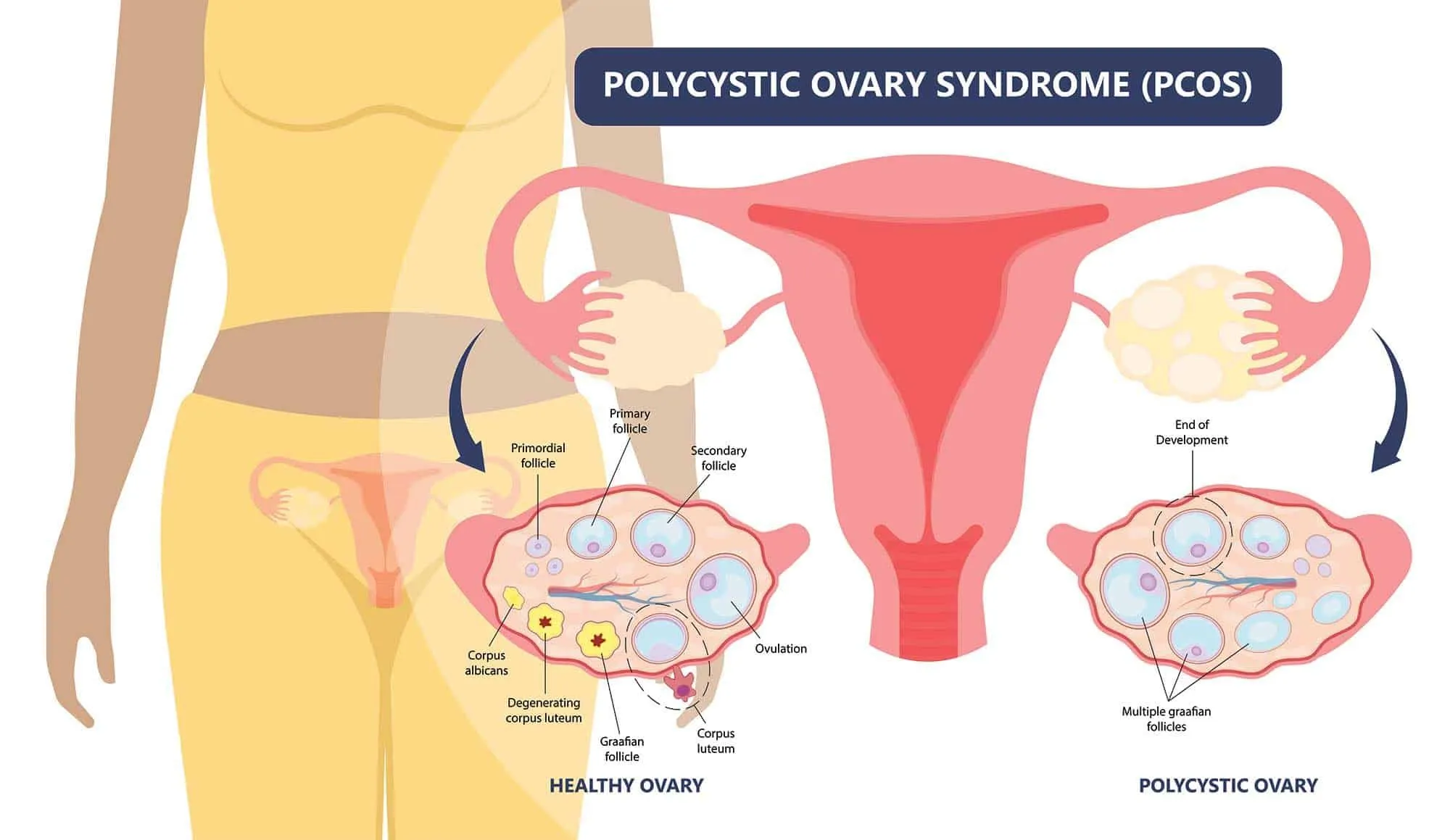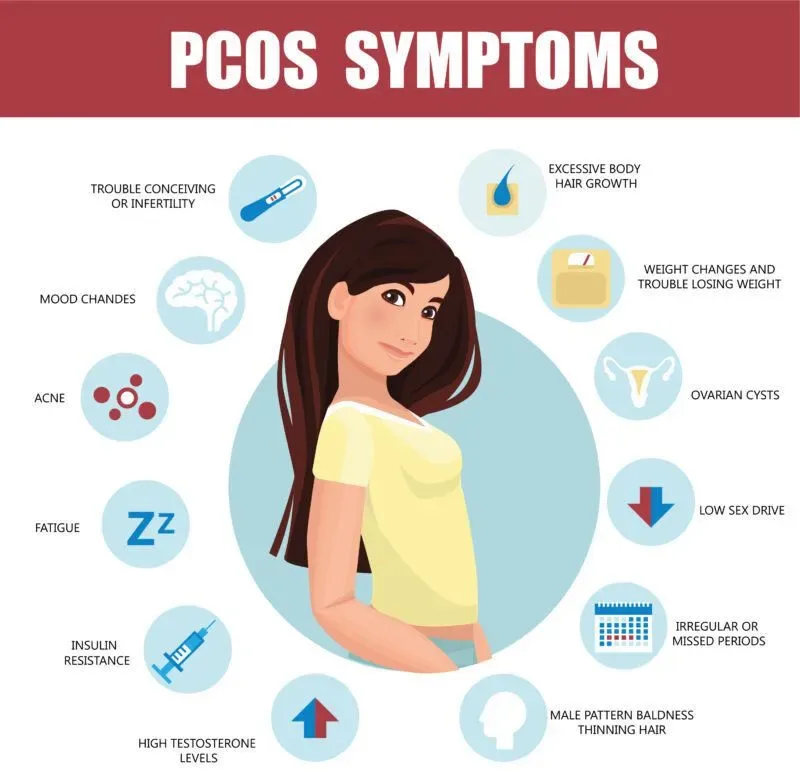Can the effects of PCOS, like Hirsutism, be permanently cured?
Houston Endocrine Center2023-05-23T14:44:07+00:00Polycystic ovarian syndrome (PCOS) is a condition that affects many women. It can cause various symptoms, including hirsutism, infertility, and menstrual irregularities. PCOS is not curable, but treatments are available for some of the symptoms.

What is Polycystic ovarian syndrome (PCOS)?
Polycystic ovarian syndrome (PCOS) is a condition that affects the ovaries. It can cause irregular periods, infertility, and hormone imbalances.
The exact cause of PCOS is unfamiliar, but it’s thought to be related to a hormone imbalance in which too much testosterone or male hormones are present in your body.
PCOS can cause a sort of symptoms, including

You may also experience other symptoms, including:
- Irregular periods.
PCOS can cause irregular or absent ovulation, which results in infrequent or absent menstruation.
- Infertility.
If you don’t get pregnant after trying to conceive for one year, you may want to speak with a doctor about the potential of having PCOS-related infertility (hypothalamic amenorrhea).
- Hirsutism (excessive hair growth).
In women with this condition, excess facial and body hair grows due to higher levels of certain hormones produced by male sex glands (testicles). This can be embarrassing and uncomfortable for many people who have it!
- Acne and oily skin.
Women with PCOS tend to have more acne than women who don’t have this condition; however, there’s no known reason why this happens exactly, so researchers are still working hard on figuring out what causes acne, specifically among those who suffer from polycystic ovarian syndrome…
PCOS is not a condition that is easily curable.
PCOS is a lifelong condition, and there is no cure for it. However, you can manage PCOS with lifestyle changes and medications. The symptoms of hirsutism can be minimized through these measures, but they will not go away entirely.
The good news is that many influential treatments are available for women with hirsutism caused by PCOS or other conditions. Some people find that one treatment works better than others; some need a combination of treatments to get their symptoms under control.
Treatment options vary depending on the severity of symptoms.
Lifestyle changes:
Modifying your lifestyle habits can significantly impact PCOS symptoms. This includes maintaining a healthy weight through regular exercise and a balanced diet. Losing even a small amount of weight, if overweight, can help regulate menstrual cycles and improve insulin sensitivity.
Birth control pills:
Oral contraceptives containing estrogen and progestin can regulate menstrual cycles and reduce androgen levels. They can also help control acne and excessive hair growth.
Anti-androgen medications:
These medications help reduce androgen (male hormones) levels in the body. Spironolactone and flutamide are commonly used anti-androgen medications.
Metformin: This medication is primarily used to treat type 2 diabetes, but it can also be helpful for women with PCOS, especially those with insulin resistance. Metformin helps lower insulin levels, regulate menstrual cycles, and improve fertility.
Fertility medications:
If you’re trying to conceive, your doctor may prescribe clomiphene citrate or letrozole to stimulate ovulation.
Surgical options:
In some cases, surgical interventions may be recommended. Ovarian drilling is a procedure in which small holes are made in the ovaries using lasers or electrical energy. This can help restore ovulation in women who haven’t responded to other treatments. However, this procedure is only sometimes performed.
It is crucial to remember that the treatment approach for PCOS can differ based on individual needs and goals. Seeking advice from a healthcare professional or gynecologist is recommended, as they can provide personalized recommendations tailored to your situation. They will consider your symptoms, overall health, and fertility goals to create an appropriate treatment plan.
PCOS affects many women globally
PCOS is a common disorder that affects women of reproductive age. It’s prevalent in women of all races and backgrounds but can affect anyone regardless of ethnicity or socio-economic status.
PCOS is the most typical hormonal disorder among women of reproductive age, affecting approximately 10% to 15% of women worldwide. While the precise cause of PCOS remains unknown, current research indicates that genetic and environmental factors contribute to its development.
Conclusion
PCOS is a prevalent condition affecting women worldwide, leading to diverse symptoms like hirsutism (excess hair growth) and infertility. While PCOS is not easily curable, several treatment options can be tailored based on the severity of symptoms.
